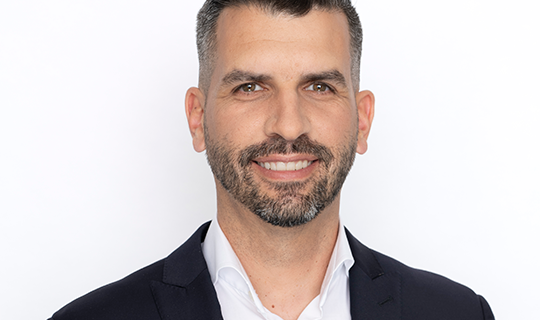

MyEDC account
Manage your finance and insurance services. Get access to export tools and expert insights.
Solutions
By product
By product
By product
By product
Insurance
Get short-term coverage for occasional exports
Maintain ongoing coverage for active exporters

Learn how credit insurance safeguards your business and opens doors to new markets.

See how portfolio credit insurance helped this Canadian innovator expand.
Guarantees
Increase borrowing power for exports
Free up cash tied to contracts
Protect profits from exchange risk
Unlock more working capital

Find out how access to working capital fueled their expansion.
Loans
Secure a loan for global expansion
Get financing for international customers
Access funding for capital-intensive projects

Find out how direct lending helped this snack brand go global.

Learn how a Canadian tech firm turns sustainability into global opportunity.
Investments
Get equity capital for strategic growth

Explore how GoBolt built a greener logistics network across borders.
By industry
Featured

See how Canadian cleantech firms are advancing global sustainability goals.

Build relationships with global buyers to help grow your international business.
Resources
Popular topics
Explore strategies to enter new markets
Understand trade tariffs and how to manage their impact
Learn ways to protect your business from uncertainty
Build stronger supply chains for reliable operation
Access tools and insights for agri-food exporters
Find market intelligence for mining and metals exporters
Get insights to drive sustainable innovation
Explore resources for infrastructure growth
Export stage
Discover practical tools for first-time exporters
Unlock strategies to manage risk and boost growth
Leverage insights and connections to scale worldwide

Learn how pricing strategies help you enter new markets, manage risk and attract customers.

Get expert insights and the latest economic trends to help guide your export strategy.
Trade intelligence
Track trade trends in Indo-Pacific
Uncover European market opportunities
Access insights on U.S. trade
Browse countries and markets
Get expert analysis on markets and trends
Discover stories shaping global trade
See what’s ahead for the world economy
Monitor shifting global market risks
Read exporters’ perspectives on global trade
Knowledge centre
Get answers to your export questions
Research foreign companies before doing business
Find trusted freight forwarders
Gain export skills with online courses
Get insights and practical advice from leading experts
Listen to global trade stories
Learn how exporters are thriving worldwide
Explore export challenges and EDC solutions
Discover resources for smarter exporting
About
Discover our story
See how we help exporters
Explore the companies we serve
Learn about our commitment to ESG
Understand our governance framework
See the results of our commitments
MyEDC account
Manage your finance and insurance services. Get access to export tools and expert insights.

Senior international trade editor
You could almost call Jocelyn Doucet, CEO of Montreal-based Pyrowave, a shape shifter: With his company’s innovative microwave technology, plastic waste can be regenerated into new products.
The chemical engineer, who co-founded Pyrowave in 2014, joins Joe Mimran, host of Export Development Canada’s (EDC) Export Impact Podcast, to talk about his company’s mission to preserve the environment by helping industries reduce their carbon footprint.
Where to listen
Follow us on your favourite streaming platforms to never miss an episode of the Export Impact Podcast. Tune in to our podcast for new episodes every second Wednesday at 6 a.m. EDT.
A world leader in chemical recycling solutions for decarbonizing industries, Pyrowave uses microwaves powered by electricity to break down plastics to make it easier to recycle polymers and reuse them in high value-added products.
“At Pyrowave, we believe the future is electric and that electricity can power a broad range of innovations to catapult a circular economy and sustainable materials,” Doucet says.

The problem with plastics, especially single-use packaging and products, is “the lifetime of the material surpasses the lifetime of the application,” she explains.
To address the global waste crisis, Pyrowave has developed technologies to electrify the three most carbon-intensive materials: Plastic, steel and cement.
“If you look at the list of greenhouse gas emissions, this is what you see on the top. We need to bring a set of new technologies to decarbonize those materials because we need them for civilization. This is what we’re bringing to the market,” he says.
Three years ago, the company partnered with tire giant, Michelin, to help them reach their goal of becoming 100% sustainable by 2040, using recycled styrene in their tires.
“It’s one chemical; it’s a commodity chemical. We’re able, with our process, to make that chemical identical to virgin with waste” to create a lower carbon footprint, Doucet says.
Click here to listen to the full podcast.
